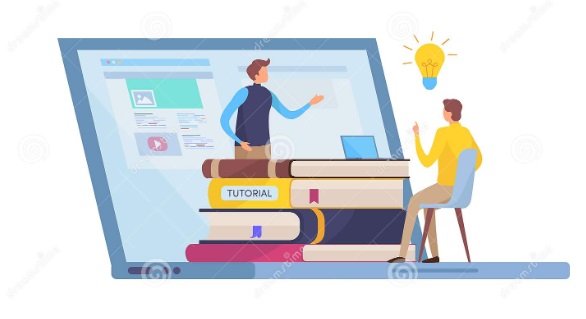
Online learning in Ghana: COVID-19 to our rescue
When the Minister of Education announced that stakeholders across learning levels in the country were to consider running online programmes, I did not know whether to laugh or cry. The mere fact that the government is giving that directive is an indictment on the institutions – National Council for Tertiary Education (NCTE), Ghana Education Service (GES), universities, polytechnics, colleges, to name five.
They ought to have been proactive by already utilising online teaching or learning. That they are not and must be prompted during a COVID-19 crisis, is a stark indicator of the stagnant nature of our educational system.
Advertisement
If the government is genuinely expecting robust action on a rigorous online system, it might be in for a huge disappointment; I genuinely hope to be proved wrong.
Online learning indicates dynamism, currency in classroom approaches. But ours is a system that steadfastly largely perceives education as a physical classroom activity, even in distance learning.
Traditional universities charge for tuition, a component of which caters for technology. Learners are given ICT accessories such as iPad, usb and airtime for internet research. Yet, instead of establishing (a)synchronous online learning systems, distance learners work full-time all week, then attend crash lectures Saturday and Sunday.
Physical classroom
Only God knows how they are able to assimilate any information, if they do. The same physical classroom interaction pertains with other regular university learners. TVET is becoming more theoretical at a time when it should be using simulation and improved technology to match training and industrial, employment standards.
Teachers in GES will go the extra mile to keep learners in a physical classroom for extra classes, for income. How many computer and technology laboratories in the secondary schools, GES learning centres and community IT centres and libraries have wifi for teaching/learning, even for the double-track learners?
The NCTE does not even have consistent standards; when it audited technical university staff for the ongoing salary migration, some assessors downgraded training/certificates that meet international educational standards.
Even worse, experienced staff of universities are labelled BBC (born before computers) due to their penchant for manual approaches. These stakeholders have been mandated to establish online teaching/learning.
Implementation
Typically, the directive from the Ministry of Education might be implemented at a snail’s pace, if at all. Because considerable time would be spent outlining reasons for potential failure – including constrained funds, remote locations, no computers, poor networking – instead of strategising and executing steps.
The fact is that, tertiary institutions have failed to invest in current technological infrastructure for rigorous online learning, even though learners pay for ICT every academic year. Furthermore, numerous teachers across the learning levels may complain about the non-possession of personal computers, probably to gloss poor IT skills.
Indeed, there might be an appeal for the government to grant computer loans to teachers for programme take-off. For the coup d’grâce, materialistic parents would also wail the non-possession of computers. And all would be done in a bid to stall the commencement of online teaching/learning. Again, I pray to be proved wrong!
But just in case I am not, for innovation and quality education, I recommend some leads to forestall any foot dragging or circumvention. Stakeholders do not have to reinvent the wheel because there is a plethora of technology for online teaching/learning.
Google has an excellent virtual application; the Google Classroom covers activities from information dissemination to interactive classroom, to transparent, dynamic assessment. Additionally, teachers can generate virtual classrooms through the Microsoft Outlook group application. Empatico, Edutopia, the mindset TV channel are all effective, interactive virtual teaching/learning resources for basic and secondary learners respectively and these are just the tip of the iceberg.
There is no shortage of virtual teaching/learning resources.
High speed internet is a must though, so are effective reading and writing skills. Then teachers can input the syllabus from the GES learning centres. No hollow excuses: All teachers should possess personal computers; GNAT, NAGRAT, TUTAG, UTAG can arrange credit facilities for those who do not have.
Parents must be persuaded to prioritise education and invest in phones/computers since free education is already a leeway. COVID-19 is compelling Ghana to a much needed dynamism in education. Paradoxical!
The writer is a Lecturer, Takoradi Technical University.
E-mail: [email protected]




